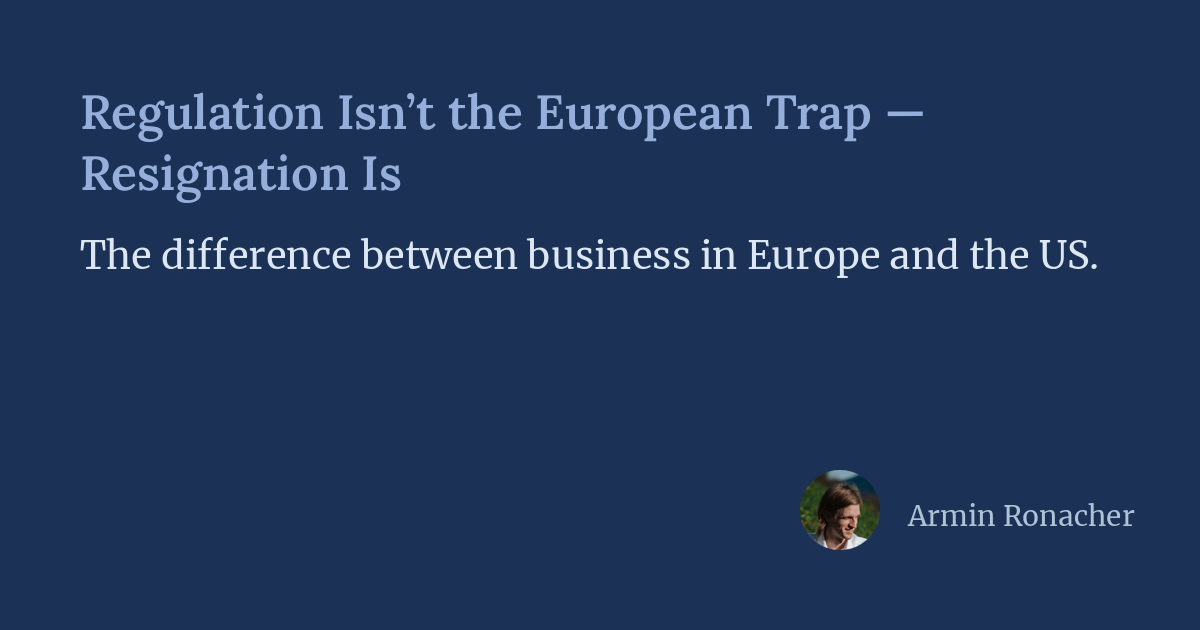
"What bothers me isn't the rules - it's the posture that develops form it within people that should know better. Across the system, everyone points at someone else. If a process takes 10 steps, you'll find 10 people who feel absolved of responsibility because they can cite 9 other blockers. Friction becomes a moral license to do a mediocre job (while lamenting about it)."
"There are excellent people here; I've worked with them. But they are fighting upstream against a default of low agency. When the process is bad, too many people collapse into it. Communication narrows to the shortest possible message. Friday after 2pm, the notary won't reply - and the notary surely will blame labor costs or regulation for why service ends there. The bank will cite compliance for why they don't need to do anything."
European systems combine brittle politics, dense bureaucracy, mandatory notaries, and rigid KYC/AML requirements that impede startup operations. Cultural and legal opposition to entrepreneurship and employee equity reinforces these constraints and makes change unlikely. Processes encourage diffusion of responsibility: when procedures require many steps, each participant cites other blockers and avoids ownership. Low agency becomes normalized, communication shrinks to minimal messages, and service windows and compliance excuses justify inaction. Banks, registrars, and notaries often prioritize adherence to rules over enabling outcomes. In contrast, US practices favor responsiveness and proactive problem-solving to enable progress.
Read at Armin Ronacher's Thoughts and Writings
Unable to calculate read time
Collection
[
|
...
]